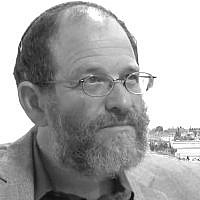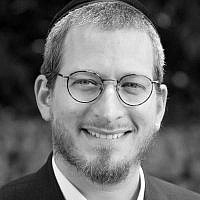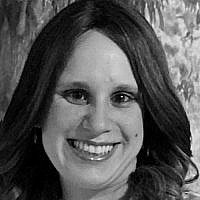Military Exemption: Fake Rabbinic Reasoning
The present flash-point in state-religion tensions is the draft exemption for ultra-Orthodox yeshiva students. A well-publicized speech by a leading Lithuanian rabbinic authority, Rabbi Yehoshua Eichenstein, focuses the Haredi arguments on two points, that are voiced time and again by Haredi authorities. Both arguments are false and represent a corruption of rabbinic patterns of thought. They reveal the overall mentality and sense of belonging to Israeli society, which is, of course, at the root of the present social conflict. Exposing the false reasoning will allow us to tackle the real issue – Haredi belonging and mutual responsibility within broader society.
Torah Scholars Are Key to Military Success
The key argument, that is meant to assuage Haredi conscience and to justify to others why yeshiva students should be exempt from military service, relies on a rabbinic notion that Torah study is the basis for military success. A rabbinic saying (Bavli Makot 10a) affirms this relationship. It is part of a broader worldview according to which Torah study sustains the world.
The common argument proceeds along the lines that those who share this world view will support draft exemption while those who argue for yeshiva students’ enlistment in fact deny this truth and rely on sheer human power, contravening deep faith in God. This is a false dichotomy. One can affirm the truth that our spiritual foundations are the basis for our practical success, without supporting draft exemption, as indeed all hesder yeshivot and similar institutions indeed affirm. The problem with the Haredi position is, in the first place, that it takes an aggadic (non halakhic) saying (and a complementary saying that the Torah protects, Bavli Sotah 21a) and constructs an entire social policy, with wide ranging implications for matters of life and death, based upon it. More profoundly, it violates the core logic of halacha and of the entire rabbinic project as such. Any beginning student of Talmud knows that the opening discussion of the Mishna, Berachot 1,1, consists of a discussion of precision, timing and quantification. The entire halachic project is one of taking the Torah’s commandments and providing them with precision and measure. How much challah has to be given? What is the measure of matzah we are to eat at the seder? How far can one walk on Shabbat outside town? And so on and so forth. Absent this concern for quantification and precision and most of the Talmud becomes redundant.
What is at the source of present day social strife is not an ideological battle. It is a battle about the limits and boundaries of application of a principle that is not exclusive to Haredi society. Others believe the same theoretical foundations, or are at least willing, as Ben Gurion was, to respect them. The problem is the failure to apply fundamental halachic reasoning to an issue that should be addressed by halachic tools. Assuming the validity of the metaphysical arguments, what is the quantity of Torah scholars that are needed to sustain us in battle? Is there an upper limit? And is there a minimum number? Might the Zohar’s (Zohar Hadash, Noah) reference to a single dedicated community that is sufficient to bring Messiah suggest that quality is more crucial than quantity? Other questions arise, if one were to approach the matter with the halakhic seriousness that is required of a ruling that is of the caliber of דיני נפשות, vital matters of life and death. Could the requirement for protecting us at war by Torah study not be accomplished by a cadre of dedicated students/scholars aged 50 or 60 and above? And what of the value of Torah study by women? Granted that we are dealing with a men’s only world, still – the halakhic ruling must also in this case, as with reference to any other mitzva, consider its applicability to women. Even if women are not commanded to study Torah, even within the strictest ultra orthodox communities some form of Torah study is undertaken by women. So, for purposes of a halakhic discussion, what is the life-saving value of 10,000 women studying zena u’rena¸ a complication of biblical stories made for women?
In short, the reasoning offered is sham reasoning. None of these questions are ever discussed because a vital issue that ought to be approached using halakhic tools is approached using populist, aggadic reasoning. This reasoning hides behind a metaphysical-spiritual principle and fails to address it by means of serious halachic tools. Social policy and halacha require such serious application. All the rest is politics.
The Tribe of Levi
A second common argument, that was also featured in the scandalous comments of Chief Rabbi Yitzhak Yosef, who suggested leaving Israel would be preferable to serving in the army, relies on the Rambam’s concluding passage in the laws of Shemita Veyovel. According to the Rambam:
Not only the tribe of Levi, but every man that passes through the world, whose spirit and intellect drove to separate him to stand before God to serve and worship Him, to know Him. Who also walked in the righteous path as God made him, removed the yoke of the many [extraneous] matters that men tend to seek out, such a person if considered holiest among the holy. God will be his legacy forever. (Hilkhot Shemita Veyovel 13:11)
As Rabbi Yosef stated, yeshiva students are “the tribe of Levi”, a fact that was misunderstood by secular commentators as reference to ancestral lineage. Once again, an aggadic text is stretched way beyond its scope in the service of a contemporary social-political agenda. To begin, the text refers to “every man”, in other words it applies to Jews and non-Jews alike. Rambam never envisaged this aggadic conclusion, typical of how he incorporates inspirational religious ideals at the end of extensive halakhic presentations, would be narrowly focused on Torah students. Indeed, there is nothing in this text that makes it specifically relevant to them. Hence, as many have noted, it stands in contrast with other explicit relevant rulings by Rambam.
More importantly, the text speaks of individuals (not an entire social classes) that remove themselves from earthly concerns and who dedicate themselves to the service of God (form unspecified), who are to be seen as latter day reflections of the holiness of the tribe of Levi. This holiness found specific expression, as the previous passage makes clear, in not having a share in the land of Israel. How ironic that of all ministries, the ultra Orthodox currently hold office in the ministry of housing, serving thereby the interests of their community in having a share in the land, contravening the biblical precedent of Levi and the teaching that Rambam derives from it. Once again, a sham reading of an aggadic text assumes weight it was never intended to have, and is applied to circumstances that violate its own internal logic. Fake halakhic reasoning is put in the service of social and political ideals.
What Kind of Torah Can Protect Us?
Following October 7th, many have asked of what use tens of thousands of Torah students are if they failed to protect us. If reality-oriented statements are made, they should be subject to verification and falsification. I’d like to approach the same argument from a different angle. As I suggest, Ultra-Orthodox reasoning violates the norms of halakhic reasoning, as applied over two millennia. It is insincere.
This raises two important questions regarding Torah study. Granted that Torah study has cosmic beneficial value and granted that it has the potential to protect us, what kind of Torah study achieves this? If the answer is that any Torah study does, then women could achieve these beneficial results without requiring an army (literally) of Torah scholars. If there is some criterion of selection, is it only curriculum-based, requiring the kind of study that is applied in the yeshivot? What of the quality of study? Two main issues arise from my analysis – truth and purity of intention. The two most common arguments offered by the Haredi world are false, from the standpoint of correct reading of sources and their application according to standard halakhic norms. What other falsehoods are propagated in the name of Torah? How much truth, or falsehood, can Torah contain before it loses its beneficial protective benefits?
The second issue arises from the passage in the Rambam. Torah study must be carried out lishma, for the love of God, with no desire of reward, honor, or earthly calculations. This is what proffers on certain individuals an equivalence to Levitical dedication to the service of God. Clearly, very few individuals rise to this height. The concomitant insistence on army exemption and government funding undercuts the very reason for exemption from military service, offered by Haredi apologists. If Torah study is tied to financial, social and political interests, as it is, then it loses its Levitical status. It may well also lose its beneficial cosmic and protective status.
In other words, quite apart from the mishandling of rabbinic texts in the service of social and political needs, there is a deeper spiritual crisis that lurks behind such misapplication. It points to deeper ailments within Haredi reasoning and society, stemming from the particularities of the political realities in Israel. If so, forcing the issue of military service may not only be a need of broader Israeli society. It may also aid the process of a much-needed purification within Haredi society, that has lost much of its authenticity due to the convoluted reality that Israeli society and Israeli political reality have forced upon it.



